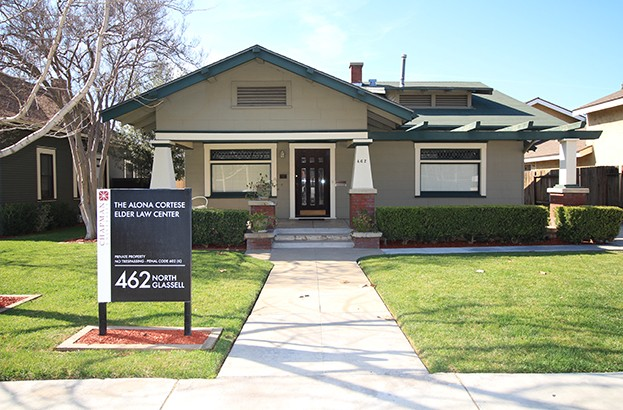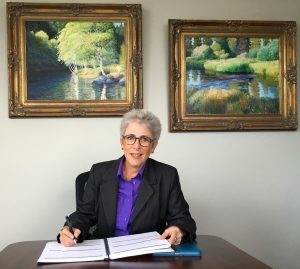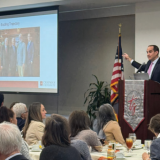
Chapman’s free legal clinics prove to be launching pad for local attorney
September 27, 2016
As promised in the October print issue of Neighbor to Neighbor, here’s a story about one of the Chapman University alumni who got their start at the Dale E. Fowler School of Law.
At 49, Jordana Furman (J.D. ’13) was not a typical student when she entered the Fowler School of Law at Chapman University.

Jordana Furman
She had an MBA in her pocket and a career as a management consultant already behind her, but Furman was looking for something different. After working in Chapman University’s Alona Cortese Elder Law Center and the Military and Veterans Law Institute while earning her law degree, Furman opened a solo practice in Santa Ana with a focus on estate planning.
“I got to a ripe old age and knew I wanted to find something that I could feel good about and earn a living, hang out my own shingle and have work/life balance,” she said. “Law fit, as well as being an intellectual challenge where I could read and write.”
As a law student, Furman took advantage of two of the more than half-dozen Chapman clinics that offer legal services pro bono to clients unable to pay for the assistance they need.
“The clinics are great, and the No. 1 reason is the interaction with clients,” Furman said. “You learn how to do intake, talk to clients, listen to clients, explain things to clients.”
No matter students’ age when they first encounter elder law issues, Sandra Skahen, J.D., an associate clinical professor of law and assistant director of the Cortese Elder Law Center, expects them to take away something valuable.
“It’s really exciting to me to give students those tools, because unless they’re orphans, they all have family members who could be in this situation at some stage,” Skahen said, particularly citing the onset of dementia. “One of my hopes is that when these issues come to the fore, these students will have perspectives that other people in their family won’t have and will kind of be a force for good.”
For Furman, working with estate issues and problems affecting older clients seemed like a fit.
“Being older myself, I thought that would also be good,” she said. “I thought it would be easier for them to talk to someone my age than somebody very young.”

